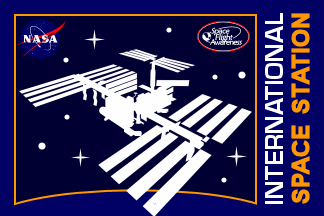Part 2 of 2 Parts (Please read Part 1 first)
Both Ted Cruz and Bill Nelson are strong supporters of extending federal funding for the ISS. Their states both contain major NASA centers that oversee the ISS. Cruz said, “Let me be clear: as long as I’m chairman of this subcommittee, the ISS will continue to have strong support — strong bipartisan support — in the United States Congress.” He added that ending the ISS program without a good replacement would be disastrous. “Prematurely canceling a program for political reasons costs jobs and wastes billions of dollars,” he said. He also pointed out that the 2025 termination date was arbitrary and not backed by science.” He asked a NASA official if the 2025 date was chosen by NASA or the Trump Administration. The official responded that the Administration had proposed the 2025 date.
Bill Nelson said, “If this plan to prematurely end the current ISS program moves forward, I fear that NASA’s expertise in these critical areas — expertise that we’re going to have to have if we’re going to Mars with humans and safely return — that that expertise is going to be lost.”
There are some negatives to extending the ISS program for the U.S. As with any work of human beings, aging increases the risk of catastrophic failure. Fully funding the ISS means that NASA will spend between $3 billion and $4 billion every year. In addition, the U.S. is not the only nation involved in the upkeep of the ISS. Japan and the European Space Agency are obligated to pay about twenty three percent of NASA’s costs on the ISS. It is not yet clear that they will want to continue contributing to the maintenance of the ISS beyond the 2025 date if the U.S. stops funding.
NASA could just scrap the ISS program by dismantling the ISS and sending the pieces down from orbit to burn up in the Earth’s atmosphere. That is not an easy task. It has been estimated that dismantling and deorbiting the ISS would require about three years and costs almost a billion dollars.
No matter what NASA does with respect to the ISS, it will require a lot of planning and a lot of money. Congress is still finalizing the budget for NASA for next year. Given the statements of Cruz and Nelson, it is likely that Congress will vote to keep the ISS in operation for a lot longer. However, NASA needs to be informed of what is going to happen to the ISS program as soon as possible. Martin said, “The sooner that Congress and the administration agree on a path forward for the ISS, the better NASA will be able to plan.”
Given the time, energy and money that have gone into the construction of the ISS, it would seem reasonable to keep the program in operation with federal funding at least until the 2028 date. Space exploration and exploitation will just keep increasing and the time might come when private space companies would be able to justify the cost of participating in the continued operation of the ISS.
